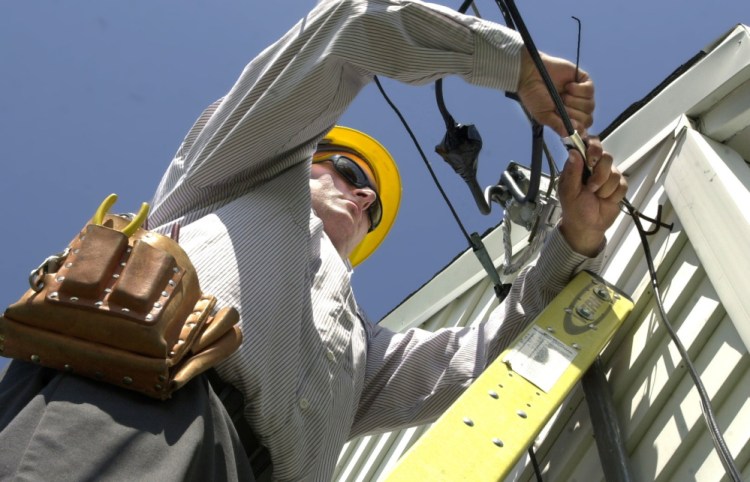To get internet with adequate speed into more rural areas, you could offer incentives for companies to build lines in places where there would otherwise be too few customers, and you could offer subsidies to residents to make the customer base as large as possible.
Or you could just change the definition of “adequate.”
Unfortunately, the Federal Communications Commission is looking hard at the latter option, and that’s bad news for the thousands of Mainers living in parts of the state unserved by high-speed internet.
At issue is Section 706 of the Telecommunications Act, which requires the federal government to periodically assess whether broadband internet – key to economic development and, increasingly, everyday life in the 21st century – is being deployed throughout the country in a reasonable and timely fashion. If not, the government must take action by “removing barriers to infrastructure and by promoting competition in the telecommunications market.”
The Obama administration consistently ruled that the act’s standard was not being met because of the lack of broadband internet in rural areas, where there are not enough customers to make it worthwhile for service providers to complete costly upgrades.
The FCC’s latest report says that 19 million Americans – including more than 45,000 Mainers – do not have access to internet with high enough speeds. That’s 6 percent of the overall population, but a full quarter of the country’s rural residents.
Categorizing those 19 million Americans as “unserved,” as the FCC does now, is a reminder to policymakers and service providers that rural parts of the country are being left behind on one of the basic necessary components of modern life.
But under the new administration, the FCC is considering a change. Wireless internet accessed over a phone would be counted as broadband, and many of those unserved Americans would instantly become “served.” That would remove any requirement for the federal government to act on their behalf, but it would also leave them stranded with substandard technology.
First off, accessing the internet over a cellular data network is slower than broadband – more than half as slow by the definitions being considered by the FCC.
That can make it difficult, even impossible, to access some records or perform video conferencing, just two abilities useful when starting a business or working remotely.
And wireless plans are also more expensive and less stable than fixed broadband plans, with data caps that can make it costly to use the internet often.
That second point was made clear last month, when Verizon announced that it was dropping 8,500 rural customers – using 19,000 lines – in 13 states, including Maine, because carrying unlimited data plans in those areas proved too costly for the company. Without a fixed-broadband alternative, many of those customers would be left without internet access.
Maybe one day, wireless internet on par with fixed broadband will become a reality – but that day is not here yet. FCC rules now state that areas should have access to both wireless and fixed broadband internet, and that should not change.
True high-speed internet is a necessity for an economy driven by the latest technology. The areas that lack it are already in trouble and are falling further behind, and that won’t stop unless the government does something more than change a definition.
Send questions/comments to the editors.


